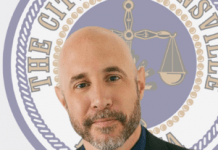By Tom Purcell
My father is behind the curve on social media, but I think he is onto something.
You see, my father was born in 1933. He was a paperboy in the days when paperboys stood on city corners and shouted “Extra!â€
In his home, the newspaper still is king. He has two delivered daily. He reads every inch of both. He does the crossword puzzles in both, too – with a pencil.
(Note to people under 30: A pencil is a small, yellow stick that leaves a mark when its tip is pressed against paper.)
My father knows that people can do crossword puzzles on their computers and smartphones, but the idea is nutty to him. Only an idiot would bring electronic equipment into the bathroom.
To be sure, my father has shunned the communications marvels of modern times. He uses my mother’s smartphone – but only to avoid long-distance charges. I showed him how to use her phone to text family members, but he gave up on that fast.
(Note to people over 50: texting is when you press both thumbs against a smartphone keypad to bastardize the English language.)
I bought him a Kindle for Christmas a few years ago and created an email account for him. He gave it a try but quickly lost interest in emailing anyone.
I showed him how to search the web to locate people and businesses. He gave that a try, too, but still prefers to use the White Pages or Yellow Pages.
(Note to people under 40: The White and Yellow Pages are thick directories of people and businesses that are left at your door once a year.)
He loves to read, so I showed him how to download ebooks, but he still prefers paper-bound books.
(Note to people under 20: A paper-bound book is a compact device in which words are printed on several pieces of paper; the paper is glued to a spine.)
But one thing he will never do is use a social media website, such as Facebook, which, says The Statistics Portal, has more than 2 billion active users.
For starters, my father thinks social media is a total waste of time.
He thinks it is causing group think, as many people “friend†others who think exactly as they do and “unfriend†those who think differently.
He thinks the fake news articles are driving misinformation – a dangerous thing in a republic, whose success depends on thoughtful, well-informed voters.
And he thinks social media is increasing incivility, as people, hiding behind their keyboards, shout and yell and call others names.
According to two former Facebook executives, my father’s observations are spot on.
According to Fortune, one former executive said that Facebook “was developed to be addictive.†He said that the information-sharing platform was designed as a “social-validation feedback loop.†He said that it “exploited weaknesses in the human psyche.â€
Fortune also reports that a second former executive said that Facebook “encourages ‘fake, brittle popularity,’ leaving users feeling empty and needing another hit, and suggested that this ‘vicious circle’ drives people to keep sharing posts that they think will gain other people’s approval.â€
Which brings us back to my father.
He may be behind the curve on social media, but he’s thriving in the real world of the White Pages, printed newspapers and books with spines.
When he wants to communicate, he approaches other human beings, usually my mother, and uses his voice. Sometimes he uses facial expressions and hand gestures to emphasize a point.
As I said, I think he’s on to something.





Great column. While there are many benefits to be found on the internet, facebook is NOT one.
Comments are closed.